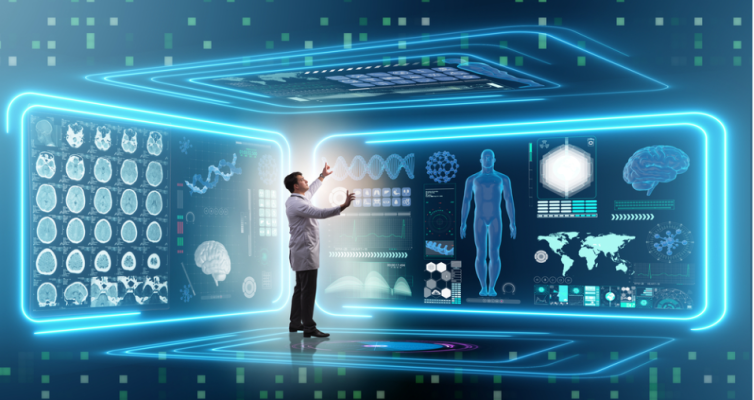general health
The Future of Health: How Technology is Revolutionizing Healthcare
Advancements in technology have revolutionized many industries, and healthcare is no exception. The use of technology in healthcare has made significant improvements in the diagnosis, treatment, and management of various diseases. With the increasing demand for healthcare services, the integration of technology in healthcare has become more necessary than ever before. In this blog, we will explore how technology is changing healthcare and what the future of healthcare looks like.
Telemedicine and Telehealth
Telemedicine and telehealth are perhaps the most significant technological advancements in healthcare. These technologies have allowed patients to access healthcare services remotely, eliminating the need for physical visits to healthcare facilities. With telemedicine, patients can receive medical advice, consultations, and prescriptions via videoconferencing with healthcare providers. Telehealth, on the other hand, includes all healthcare services that are delivered through electronic means, including remote monitoring, medication management, and disease management.
The use of telemedicine and telehealth has several benefits, including increased access to healthcare services, reduced healthcare costs, and improved patient outcomes. These technologies have become especially critical during the COVID-19 pandemic, where they have helped to reduce the spread of the virus and ensure that patients continue to receive medical care.
Artificial Intelligence and Machine Learning
Artificial intelligence (AI) and machine learning (ML) have also played a significant role in revolutionizing healthcare. These technologies have the potential to improve disease diagnosis, drug development, and personalized medicine. AI and ML can analyze large volumes of data from various sources, including medical records, genetic data, and medical imaging, to identify patterns and predict outcomes.
In the future, AI and ML could be used to create personalized treatment plans based on a patient’s unique genetic makeup, medical history, and lifestyle. AI could also help to identify potential drug interactions, reducing the risk of adverse reactions.
Read More – 5 Vitamins and Supplements that Strengthen your Immune System
Medical Imaging
Medical imaging technologies, such as MRI, CT scans, and ultrasound, have also advanced significantly over the years. These technologies have become more accurate, efficient, and affordable, enabling healthcare providers to make more precise diagnoses and develop better treatment plans. Additionally, new imaging technologies, such as 3D imaging and virtual reality, have the potential to provide more immersive and detailed visualizations of the human body.
Precision Medicine
Precision medicine is an approach to healthcare that involves tailoring medical treatments and interventions to individual patients based on their unique genetic makeup, medical history, and lifestyle. This approach relies on advanced technologies, such as genetic testing and data analytics, to identify the most effective treatments for each patient.
The use of precision medicine has the potential to significantly improve patient outcomes, reduce healthcare costs, and minimize the risk of adverse reactions to medications.
Wearable Devices
Wearable devices, such as smartwatches and fitness trackers, have become increasingly popular in recent years. These devices can monitor various health metrics, such as heart rate, sleep patterns, and physical activity, providing patients with valuable information about their health. Additionally, these devices can alert healthcare providers to potential health issues, allowing for early intervention and improved outcomes.
In conclusion, the integration of technology in healthcare has the potential to transform the way we approach medical care. From telemedicine and telehealth to precision medicine and wearable devices, these technologies have the potential to improve patient outcomes, reduce healthcare costs, and increase access to healthcare services. As technology continues to advance, we can expect to see even more significant advancements in healthcare, providing patients with the care they need to live healthy, fulfilling lives.


